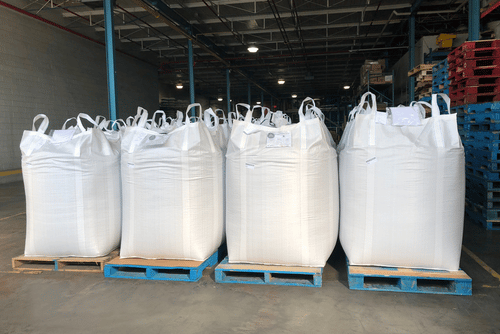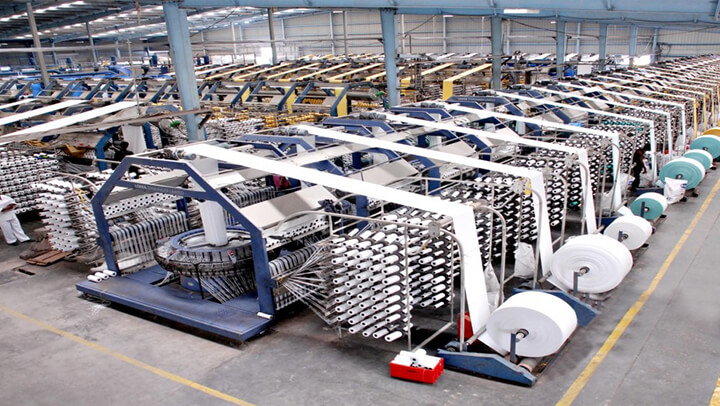Flexible intermediate bulk container (FBIC) bags are a convenient, cost-effective, and reliable way to store and transport many types of bulk materials. But, you have to be careful to choose the right type of FIBC bulk bags for your specific purpose because when the products stored in these bags are removed, the static buildup can lead to a charge of electricity. If you aren’t using the correct type of bag for your materials, the static electricity could result in a fire or worse.
IMAGE: PIXABAY
Type A All-Purpose Bags
Type A FBIC bags are designed to store and transport most items. They are made from plain-woven polypropylene and do not offer protection against static electricity. For this reason, they should never be used to store flammable materials such as solvents or gasses. However, you may still get an electric shock when unloading the materials from a Type A bag, but it won’t cause any damage other than being mildly unpleasant.
Type B Anti Static Bags
The bags that fall into the Type B category are made from non-conductive materials (as are Type A) and have a low breakdown voltage. This means that a static charge may still develop when the bag is loaded, transported, and unloaded, but it will protect against static electricity to a limited degree.
Companies that store and transport dry combustible goods with a minimum ignition energy (MIE) of greater than 3 megaJoules (mJ) can use Type B bags. Many food items contain combustible dusts that fall into this category. This type of bag should not be used around or to store or transport flammable vapors.
Type C Anti Static Bags
Type C bags are made out of several types of conductive fabrics woven together to create the bag. In many cases, these bags will also include conductive tape. The strands of conductive material and tape meet at specific points on the bag that must be grounded during the loading or unloading of the bags. These points are called grounding points, and as long as the bags are positioned correctly, they can protect against discharges and incendiary sparks.
These grounding points dissipate static energy from the bag without it coming in touch with the products in the bag. Type C bags are safe for storing and transporting combustible goods, including flammable dry powders, and they can be used around flammable gasses, dust, and vapors. But, it’s vital to know that if there is no way to ground these bags during the loading or unloading process, or if a bag has become damaged, they should not be used.
Type D Anti Static Bags
Companies that are storing or transporting combustible materials and can’t ground a Type C bag should use a Type D bag instead. These bags are constructed from a specialized static-resistant material that includes interwoven threads of static-dissipating fabric. Type D bags are safe to use with all types of materials and are the best bags to use to protect against incendiary discharge.
Conclusion
Knowing the type of FIBC bag you need for your business is essential to keeping the goods in the bag and everyone handling the bag safe from static electricity and incendiary discharge. Don’t buy your bags until you are sure which type you need to ensure maximum safety.


COMMENTS